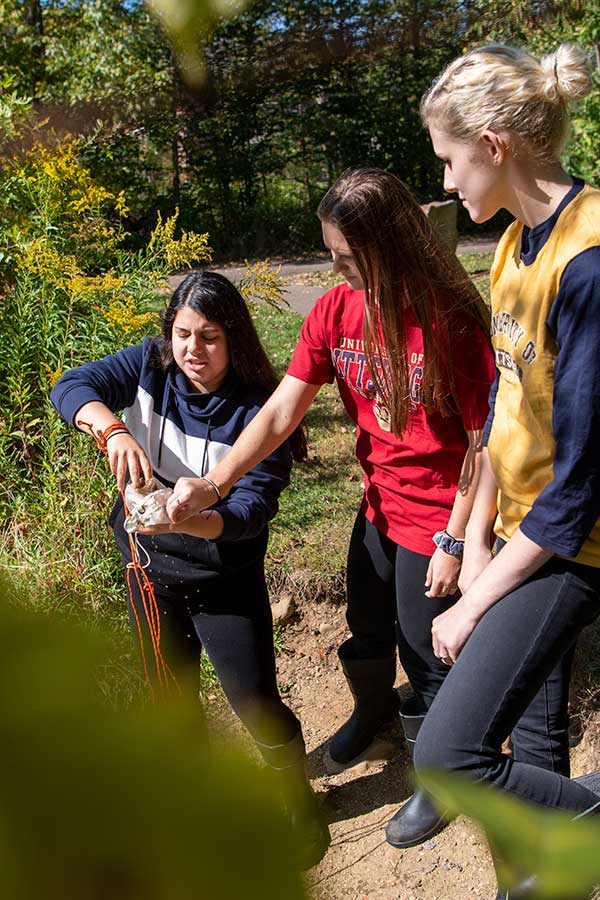
Communications - BA
Good communication and communicators are needed everywhere and all of the time.
Why study communications at Pitt-Bradford?
With this program, you'll learn the communication skills to help you succeed in almost any industry and also will increase your marketability by declaring a minor, such as digital graphic design, marketing or writing. You'll have the opportunity to put your communication skills to use during the internship portion of the program.
What will I learn?
In our program, you’ll learn the skills that will help you in countless settings and circumstances, from simple conversations to large-scale messages intended for the mass media. You’ll further increase your marketability by participating in one of our many academic minors, such as public relations, digital graphic design or writing.

What can I do with a degree in communications?
In addition to helping you secure a good job, this program is highly suitable if you’re thinking of going to graduate school.

Kelsey Brown got interested in working in the social media industry after listening to a podcast one day that took her “behind the scenes” in the industry.
-
COMM 0115
Interpersonal CommunicationThis course is an introduction to and overview of basic theories and research in inter-personal communication. The course addresses our behavior in interpersonal interactions and application of theory and research studied in various settings including the small group. Units of instruction include self-concept formation, stages of relationships and types of relationships, power, conflict and other aspects of interpersonal communication. -
COMM 0120
Intercultural CommunicationThis course explores the dynamics of culture and communication, and the social effects generated by their interaction. This course emphasizes the establishment and maintenance of student understanding of intercultural dynamics in a manner that positively impacts life outside the classroom.
Program-Related News

Professors publish and present
Alumnus publishes first article with faculty mentors.